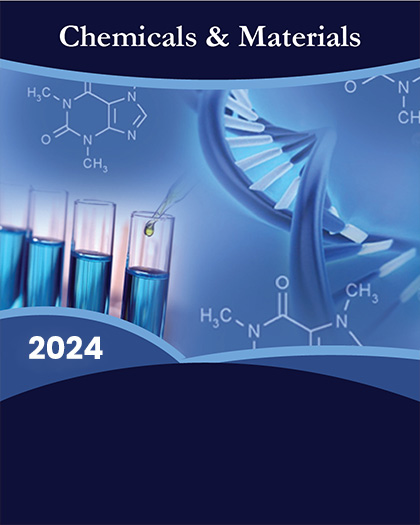Table of Content
1 Study Coverage
1.1 Antimicrobial Coating Product Introduction
1.2 Market by Type
1.2.1 Global Antimicrobial Coating Market Size Growth Rate by Type, 2018 VS 2023 VS 2029
1.3 Market by Application
1.3.1 Global Antimicrobial Coating Market Size Growth Rate by Application, 2018 VS 2023 VS 2029
1.4 Global Antimicrobial Coating Market by Region
1.4.1 Global Antimicrobial Coating Market by Region: 2018 VS 2023 VS 2029
1.4.2 Global Antimicrobial Coating Revenue Market
1.5 Study Objectives
1.6 Years Considered
1.7 Inflation Analysis
1.8 The Impact of the Russian-Ukrainian War on the Market
1.9 Coronavirus Disease (COVID-19) Impact on Global
2 Competition by Players
2.1 Global Antimicrobial Coating Revenue by Players
2.1.1 Global Antimicrobial Coating Revenue by Players (2018-2023)
2.1.2 Global Antimicrobial Coating Revenue Market Share by Players (2018-2023)
2.1.3 Global Top 5 and Top 10 Companies by Antimicrobial Coating Revenue in 2023
2.2 Global Antimicrobial Coating Gross Margin by Players
2.3 Analysis of Competitive Landscape
2.3.1 Players Market Concentration Ratio (CR5)
2.3.2 Global Antimicrobial Coating Players Geographical Distribution
2.4 Mergers & Acquisitions, Expansion Plans
3 Company Overview
3.1 Akzo Nobel
3.1.1 Akzo Nobel Information
3.1.2 Akzo Nobel Overview
3.1.3 Akzo Nobel Antimicrobial Coating Revenue and Gross Margin (2018-2023)
3.1.4 Akzo Nobel Related Developments
3.2 PPG
3.2.1 PPG Information
3.2.2 PPG Overview
3.2.3 PPG Antimicrobial Coating Revenue and Gross Margin (2018-2023)
3.2.4 PPG Related Developments
3.3 Sherwin-Williams
3.3.1 Sherwin-Williams Information
3.3.2 Sherwin-Williams Overview
3.3.3 Sherwin-Williams Antimicrobial Coating Revenue and Gross Margin (2018-2023)
3.3.4 Sherwin-Williams Related Developments
3.4 Axalta
3.4.1 Axalta Information
3.4.2 Axalta Overview
3.4.3 Axalta Antimicrobial Coating Revenue and Gross Margin (2018-2023)
3.4.4 Axalta Related Developments
3.5 BASF
3.5.1 BASF Information
3.5.2 BASF Overview
3.5.3 BASF Antimicrobial Coating Revenue and Gross Margin (2018-2023)
3.5.4 BASF Related Developments
4 Global Antimicrobial Coating Market Insights
4.1 Global Antimicrobial Coating Market Revenue 2018-2023
4.2 Global Antimicrobial Coating Revenue by Region
4.3 Americas
4.4 Europe
4.5 Asia-Pacific
4.6 Middle East & Africa
5 Market Size by Type
5.1 Global Antimicrobial Coating Revenue by Type
5.2 Global Antimicrobial Coating Market Size Growth by Type 2018-2023
6 Market Size by Application
6.1 Global Antimicrobial Coating Revenue by Application
6.2 Global Antimicrobial Coating Market Size Growth by Application 2018-2023
7 Americas
7.1 Americas Antimicrobial Coating Market Size by Type
7.1.1 Americas Antimicrobial Coating Revenue by Type (2018-2023)
7.1.2 Americas Antimicrobial Coating Revenue Share by Type (2018-2023)
7.2 Americas Antimicrobial Coating Market Size by Application
7.2.1 Americas Antimicrobial Coating Revenue by Application (2018-2023)
7.2.2 Americas Antimicrobial Coating Revenue Share by Application (2018-2023)
7.3 Americas Antimicrobial Coating Market Size by Country
7.3.1 Americas Antimicrobial Coating Revenue by Country (2018-2023)
7.3.2 U.S.
7.3.3 Canada
7.3.4 Mexico
7.3.5 Brazil
7.3.6 Argentina
8 Europe
8.1 Europe Antimicrobial Coating Market Size by Type
8.1.1 Europe Antimicrobial Coating Revenue by Type (2018-2023)
8.1.2 Europe Antimicrobial Coating Revenue Share by Type (2018-2023)
8.2 Europe Antimicrobial Coating Market Size by Application
8.2.1 Europe Antimicrobial Coating Revenue by Application (2018-2023)
8.2.2 Europe Antimicrobial Coating Revenue Share by Application (2018-2023)
8.3 Europe Antimicrobial Coating Market Size by Country
8.3.1 Europe Antimicrobial Coating Revenue by Country (2018-2023)
8.3.2 Germany
8.3.3 France
8.3.4 U.K.
8.3.5 Italy
8.3.6 Russia
9 Asia Pacific
9.1 Asia Pacific Antimicrobial Coating Market Size by Type
9.1.1 Asia Pacific Antimicrobial Coating Revenue by Type (2018-2023)
9.1.2 Asia Pacific Antimicrobial Coating Revenue Share by Type (2018-2023)
9.2 Asia Pacific Antimicrobial Coating Market Size by Application
9.2.1 Asia Pacific Antimicrobial Coating Revenue by Application (2018-2023)
9.2.2 Asia Pacific Antimicrobial Coating Revenue Share by Application (2018-2023)
9.3 Asia Pacific Antimicrobial Coating Market Size by Region
9.3.1 Asia Pacific Antimicrobial Coating Revenue by Region (2018-2023)
9.3.2 China
9.3.3 Japan
9.3.4 South Korea
9.3.5 India
9.3.6 Southeast Asia
9.3.7 Australia
10 Middle East and Africa
10.1 Middle East and Africa Antimicrobial Coating Market Size by Type
10.1.1 Middle East and Africa Antimicrobial Coating Revenue by Type (2018-2023)
10.1.2 Middle East and Africa Antimicrobial Coating Revenue Share by Type (2018-2023)
10.2 Middle East and Africa Antimicrobial Coating Market Size by Application
10.2.1 Middle East and Africa Antimicrobial Coating Revenue by Application (2018-2023)
10.2.2 Middle East and Africa Antimicrobial Coating Revenue Share by Application (2018-2023)
10.3 Middle East and Africa Antimicrobial Coating Market Size by Country
10.3.1 Middle East and Africa Antimicrobial Coating Revenue by Country (2018-2023)
10.3.2 Turkey
10.3.3 Saudi Arabia
10.3.4 U.A.E
11 Market Drivers, Opportunities, Challenges and Risks Factors Analysis
11.1 Antimicrobial Coating Industry Trends
11.2 Antimicrobial Coating Market Drivers
11.3 Antimicrobial Coating Market Challenges
11.4 Antimicrobial Coating Market Restraints
12 Antimicrobial Coating Forecasted Market Size by Type
12.1 Global Antimicrobial Coating Forecasted Revenue by Type
12.2 Global Antimicrobial Coating Forecasted Market Size Growth by Type 2023-2029
13 Antimicrobial Coating Forecasted Market Size by Application
13.1 Global Antimicrobial Coating Forecasted Revenue by Application
13.2 Global Antimicrobial Coating Forecasted Market Size Growth by Application 2023-2029
14 Global Antimicrobial Coating Market Forecasts
14.1 Global Antimicrobial Coating Market Revenue Forecasts 2023-2029
14.2 Global Antimicrobial Coating Forecasts Revenue by Region
14.3 Americas
14.4 Europe
14.5 Asia-Pacific
14.6 Middle East & Africa
15 Research Findings and Conclusion
16 Methodology and Data Source
16.1 Methodology
16.1.1 Research Process
16.1.2 Market Size Estimation
16.1.3 Market Breakdown and Data Triangulation
16.2 Data Source
16.2.1 Legal Disclaimer























